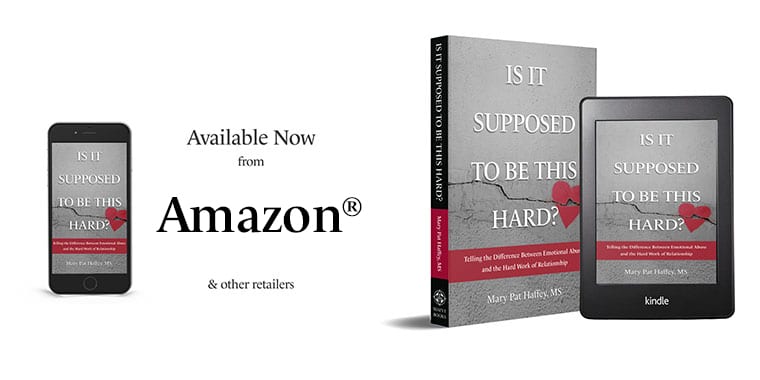When you are trying to work with an abuser, everything is hard, hard work and you’re the only one who is truly doing the work. Everything you are saying seems to be falling on deaf ears. And you are working in opposite directions. You’re trying to be heard and have open communication and move forward, and he is trying to justify himself and placate you or something. But relationships shouldn’t be that hard. If a relationship is really hard to the point where it feels impossible, then something is wrong.
—Sabrina
If you are in an emotionally abusive relationship, Sabrina’s frustration will sound familiar to you. Do you, like her, feel as if your efforts to improve your relationship are mostly one-sided? Are you often discouraged and frustrated when you try to communicate with your partner about the problems between you? Does it often seem like your partner is working against you rather than with you? There is a reason why emotionally abused people feel like they and their partners are “working in opposite directions.” It’s because they are.
THE UNSPOKEN CONTRACT
Most human relationships include unconscious and unspoken agreements. Unlike oral or written contracts, unspoken relationship contracts are made without either person being fully aware of what they are agreeing to. These contracts are influenced by four things:
- Common wisdom about what constitutes a good relationship
- The innate drive of humans to connect with a trusted other—to love and be loved
- Family of origin dynamics
- The daily interactions that shape a couple’s everyday life together.
People come together to form intimate partnerships believing they and their beloved share mutual understandings about what makes a healthy, loving relationship; they believe they have a shared relationship contract. However, most couples soon discover that they also have plenty of misunderstandings about what a partnership should be, and that is where the hard work of relationship begins. With healthy couples, the relationship contract is based on a mutual commitment to the well-being of each person and the relationship as a whole, so they have a basic foundation for working through their differences. In abusive relationships, there is no such mutual agreement, although one partner believes that there is.
While abused partners trust that the person they love is working with them toward mutual well-being and a healthy relationship, abusers are taking advantage of that trust to gain a position of power over them. This unspoken and unrecognized misalignment in the relationship contract sets up the essential, yet hidden power imbalance upon which the emotionally abusive relationship is based. It allows abusers to subtly maneuver for dominance and control while their partners believe they are both involved in the work of building a loving, mutually supportive and respectful relationship.
COMMON WISDOM
Early in a relationship, as couples profess their love and discuss their future together, they explicitly and implicitly promise such things as mutual commitment, support, and care for each other. In healthy relationships, the unspoken contract closely reflects the conscious, spoken agreements the couple makes. These agreements are generally influenced by common wisdom we receive from our elders, spiritual leaders, and mental health experts.
From the time we are teenagers and start thinking about choosing a life partner, we are told that strong relationships are the result of hard work and involve things like compassion, forgiveness, and compromise. We are advised to accept our partner’s faults and take responsibility for our own. Wise people tell us that it takes time to learn how to live together, to negotiate differences, and to communicate in the context of an intimate relationship.
Therefore, we are encouraged to stay committed and work through the hard times with the idea that we will be rewarded with a happier relationship in the end. Unfortunately, the very teachings that create a roadmap for a healthy relationship when both partners participate in them can actually put the abused partner at a severe disadvantage in an abusive situation. Let’s look at these principles and see how they are applied in both healthy and abusive relationship dynamics.
